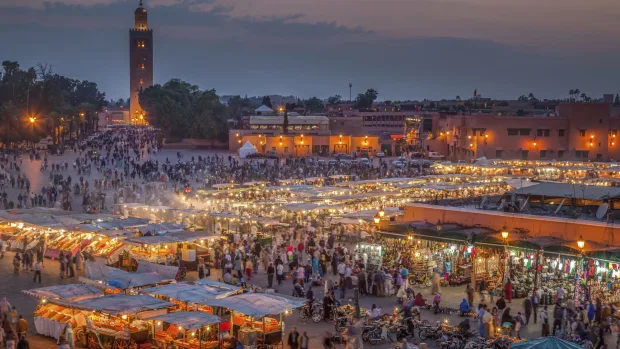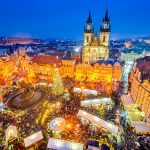Traveling in Morocco can be a rich and diverse experience, offering a mix of vibrant cities, historic sites, and stunning natural landscapes. Here are some key aspects to consider when planning a trip to Morocco:
- Cities to Visit:
- Marrakech: Known for its bustling markets (souks), vibrant medina, and historic sites like the Jardin Majorelle and the Koutoubia Mosque.
- Fes: Famous for its well-preserved medieval architecture and the UNESCO-listed Fes el-Bali, the oldest walled city in the world.
- Casablanca: A modern city with a blend of contemporary and traditional influences. Visit the Hassan II Mosque, one of the largest mosques globally.
- Chefchaouen: The “Blue City” is renowned for its blue-painted buildings nestled in the Rif Mountains.
- Historic Sites:
- Explore the ancient Roman ruins of Volubilis.
- Visit the impressive Ait Ben Haddou, a UNESCO World Heritage site and a traditional mud-brick ksar along the former caravan route.
- Discover the historical significance of the Mausoleum of Moulay Ismail in Meknes.
- Desert Experience:
- Embark on a desert adventure in the Sahara Desert. Merzouga and Erg Chebbi are popular destinations for camel treks and overnight stays in desert camps.
- Cultural Experiences:
- Experience traditional Moroccan hospitality in a riad, a traditional Moroccan house or palace with an interior garden or courtyard.
- Attend a traditional Berber musical performance.
- Explore the local markets (souks) for unique handicrafts, spices, and textiles.
- Cuisine:
- Sample Moroccan cuisine, known for its rich flavors and diverse influences. Try tagines, couscous, pastillas, and mint tea.
- Visit local markets and food stalls to experience street food.
- Practical Tips:
- Respect local customs, especially in more conservative areas.
- Bargaining is common in markets; be prepared to negotiate prices.
- Dress modestly, especially in religious and rural areas.
- Be cautious with water and opt for bottled water to avoid waterborne illnesses.
- Transportation:
- Consider the efficient train network for traveling between cities.
- Shared taxis and buses are common for shorter distances, and private drivers or guided tours are options for a more personalized experience.
Before you travel, it’s advisable to check for any travel advisories and ensure you have the necessary visas and vaccinations for your trip. Additionally, be aware of the local customs and regulations to make your journey more enjoyable.



